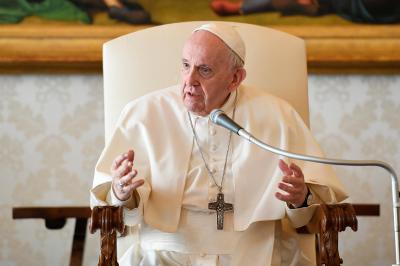New Vatican laws crack down on backhanders to prelates

VATICAN CITY - In the last week, Pope Francis has issued two Apostolic Letters, both in the form of motu proprios, legal documents issued personally by the pontiff, which outline several new legislations aimed at tackling corruption in the Vatican, according to Vatican News.
The first details that all Vatican officials must sign a declaration when they are hired, and every two years, stating that they are not currently “the subject of pending criminal proceedings” and “have not been convicted of any criminal offence in the Vatican City State or abroad.”
The declaration will also certify that “all movable and immovable property owned or held by the declarant… originates from lawful activities and does not constitute the proceeds or profit of crime,” nor is held in tax havens, and that the declarant holds no “shareholdings or interests of any kind in companies or firms operating for purposes and in sectors contrary to the Social Doctrine of the Church.”
This is perhaps partially a reaction to the story that was revealed this week of a Vatican Secretary of State investing in a company that produces the morning after pill.
The motu proprio also introduced a ban on Cardinals and Bishops accepting gifts of over dlrs 40, as part of a crackdown on what in the past was described by the Italian media as the Vatican’s so called ‘envelope culture,’ in which church officials often accept cash sums and other gifts from patrons.
In the pope’s latest motu proprio released on Friday, his 34th, he ruled that cardinals and bishops accused of common criminal offences (as opposed to ecclesiastical law) can now be tried in the Tribunal of the Vatican City State, like a normal citizen, instead of the Court of Cassation which is presided over by a cardinal.
In the document, Francis spoke of “the overriding need for the current procedural system — also by means of appropriate changes in the law — to ensure the equality of all members of the Church and their equal dignity and position, without privileges that date back to earlier times and are no longer in keeping with the responsibilities that each person has in building up the Church.”
ol


